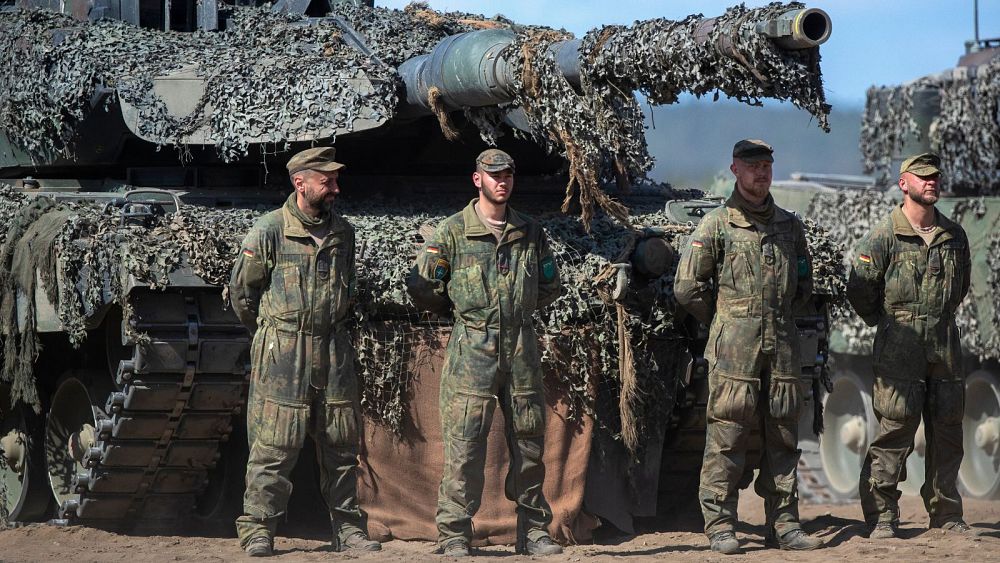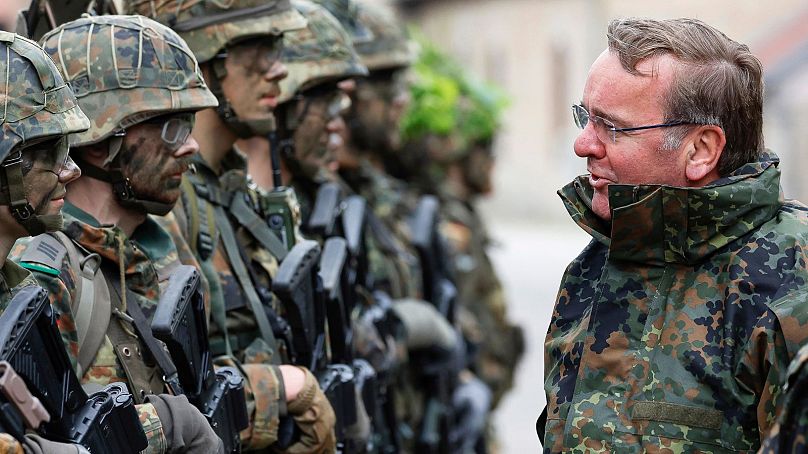
The German army is failing to recruit enough soldiers, despite a vast initiative to strengthen the country’s defence force spurred by the Ukraine war.
The number of new recruits eager to join the Bundeswehr has dropped by 7% this year compared to 2022, the Ministry of Defence announced on Wednesday.
“Everyone is talking about a shortage of personnel in the Bundeswehr – and no one knows this better than I do,” Germany’s defence minister Boris Pistorius said during a visit to an armed forces career centre in Stuttgart on Wednesday.
Last year, Germany decided it was time to massively increase its defence spending and boost its army’s numbers, which were dwindling for years, in the wake of the Russian invasion of Ukraine.
However, in February, the country’s parliamentary commissioner for the armed forces, Eva Högl, admitted the ambitious goal to increase the number of Bundeswehr soldiers from the current 183,000 to 203,000 by 2031 was “unattainable.”
Problems with the Bundeswehr include a severe lack of funding and equipment. But Högl noted a high dropout rate among recruits, as well as delays between people expressing an interest in joining the army and the Bundeswehr career centre replying.
She said response time could be as long as one year.
The issues plaguing the Bundeswehr aren’t likely to disappear any time soon. On Wednesday, Pistorius said recruiting the next generation of troops is going to be hard, as younger recruits have greater concerns about work-life balance.
According to the minister, the dropout rate among new recruits is currently at 30%.

On top of that, the ageing population in Germany – which reflects trends in much of the Western world – makes it harder for the country to find new recruits among the younger generations.
“By 2050, we will have 12% fewer people in the 15-24 age group,” he said.
In light of this challenging situation, Pistorius said the country is reviewing its goal of reaching the number of 203,000 soldiers by 2031.





